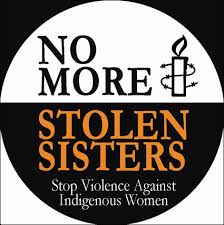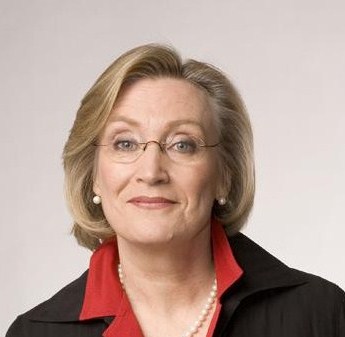Indigenous women in Canada experience rates of violence more than three times that of non-Indigenous women and young Indigenous women are five times more likely to die of violence. Moreover, recent research shows that more than 800 Indigenous women and girls have disappeared or been murdered in Canada over the past several decades.
When Parliament debated my motion on February 14, 2013 to create a special Parliamentary committee to propose solutions for this urgent crisis, we all hoped that the scope and horror of the situation would allow its work to transcend partisan politics.
While I knew the work of such a committee would in no way replace the need for a national public inquiry, I was confident the hearings would provide an opportunity for victims, their families and experts to educate Parliamentarians about the complexities of the issue. I hoped this one ‘special’ committee would be able to break through the partisanship of this Parliament and honourably report back to the House the testimony of the witnesses and their recommendations to put to an end this national tragedy.
Although the unanimous vote in the House of Commons to create the Special Committee on Violence Against Indigenous Women (the “Committee”) was an excellent beginning, the report it tabled last Friday was a complete betrayal of the memory of those we have lost, the grieving family and friends left behind and those Indigenous women and girls who continue to be victimized by violence.
The recommendations ignored the evidence and instead simply offered highlights of inadequate existing government initiatives, most not even specific to violence against Indigenous women and girls. Canadians are demanding urgent action to deal with this national tragedy, yet the government generated recommendations to simply ‘continue’ or ‘maintain’ programs and ‘examine options’ for initiatives represent a total abdication of the responsibility to take bold action and the need to move beyond the clearly failing status quo.
Instead of honestly reporting what the Committee heard, including the unanimous urging of provincial and territorial premiers and the unequivocal demand of victims’ families and Aboriginal leadership for a national public inquiry, the Conservative majority on the Committee chose to obediently acquiesce to the Prime Minister’s stubborn refusal to establish such an inquiry. The Prime Minister is on the wrong side of history and the ‘honourable’ Conservative members did not honour their duty to the public good.
For so many families and friends a national public inquiry is an essential part of their healing process. So many families were still hurting because upon reporting that their loved one was missing they were met with the callous response that their loss was ‘inevitable’. It is also important to understand that a national public inquiry is not only a matter of seeking justice and reconciliation for past injustices, but critical if we are to ever address the systemic problems underlying this ongoing crisis. We have to get to the bottom of issues like racism and sexism in policing.
As Susan O’Sullivan, the Federal Ombudsman for Victims of Crime, told the Committee: “A national commission of inquiry would allow for the voices of Canada’s Aboriginal women and communities to be heard, respected, and considered, in processes and structures designed to address their needs. In this way, strategies for preventing and responding to this crisis could be specifically tailored to the needs of Aboriginal women and rooted in understandings of the social and economic conditions that have contributed to their vulnerability.”
It is also clear that in addition to a national public inquiry, the urgency of this issue requires the immediate development and implementation of a national action plan. That national action plan must be developed in close partnership with victims’ families, Aboriginal governments and representative organizations, provinces and territories to provide for the coordination and accountability of government bodies charged with preventing and responding to the violence.
As Assembly of First Nations National Chief Shawn Atleo told the Committee: “We seek a clear and unmitigated commitment to taking action demonstrated through the creation of a national public action plan. Indigenous communities, organizations, provinces and territories, are advancing strategies to end violence, but without clearly articulated national goals and coordinated efforts led by the federal government these initiatives will not fully address the magnitude of response required to prevent and end violence against Indigenous women and girls and bring accountability to the families of those who are missing and murdered.”
Unfortunately, the Conservative majority on the Committee rejected this key recommendation as well.
This issue is about real people, both the victims of these unspeakable crimes and the families left behind. Families are seeking justice for their loved ones and a commitment that no one else will have to experience the profound pain of their loss or go through the terrible cycle of violence that so many Indigenous women and girls face. The inadequate committee recommendations must be worn by every single member of the Conservative majority on the Committee who chose not to honour what we heard or show the courage to stand up to the Prime Minister’s appalling refusal to take this issue seriously. They have let the victims and their families down yet again.
The people of Canada are beginning to understand that this is not an Aboriginal issue, it’s not a women’s issue, it’s a Canadian issue. We will get a national public inquiry, but it will require replacing this Conservative government with one that will listen and act.
By Hon. Carolyn Bennett, MP www.carolynbennett.liberal.ca




Be the first to comment on "Indigenous Women: Harper is on the wrong side of history"